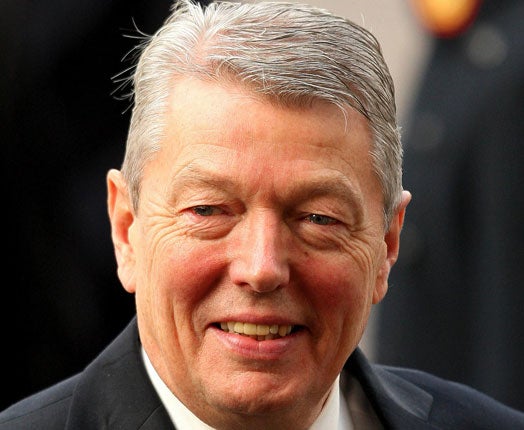Home Secretary agrees protocol with advisers

Your support helps us to tell the story
From reproductive rights to climate change to Big Tech, The Independent is on the ground when the story is developing. Whether it's investigating the financials of Elon Musk's pro-Trump PAC or producing our latest documentary, 'The A Word', which shines a light on the American women fighting for reproductive rights, we know how important it is to parse out the facts from the messaging.
At such a critical moment in US history, we need reporters on the ground. Your donation allows us to keep sending journalists to speak to both sides of the story.
The Independent is trusted by Americans across the entire political spectrum. And unlike many other quality news outlets, we choose not to lock Americans out of our reporting and analysis with paywalls. We believe quality journalism should be available to everyone, paid for by those who can afford it.
Your support makes all the difference.The Home Secretary will write formally to his drugs advisers in future to explain any decision on classification that goes against their advice, it emerged yesterday. Alan Johnson has also pledged not to "pre-judge" decisions on drug classification ahead of receiving scientific advice.
The concessions were agreed at showdown talks with the Advisory Council on the Misuse of Drugs (ACMD) yesterday in the wake of the sacking of its former chairman, Professor David Nutt.
In a joint statement between remaining members of the ACMD and the Home Secretary, Mr Johnson agreed to give "careful consideration" to all ACMD reports. In addition, he promised to look at the advice for an appropriate length of time before making his decision. Procedural changes will see advice being made public at the same time as it is received by the Home Office.
In the past, statements rejecting ACMD advice have been issued within minutes of it becoming public.
If the Home Secretary thinks he is going to reject the advice, he will meet with the ACMD chairman before making a final decision. And if he does reject it, his reasons for doing so will be made clear to the ACMD in writing.
After yesterday's meeting, which the Home Office described as "constructive", three other drugs advisers resigned. The chemist Dr Simon Campbell, the psychologist Dr John Marsden, and the scientific consultant Ian Ragan followed the path taken by Marion Walker and Dr Les King in the immediate aftermath of Professor Nutt's dismissal.
Dr Campbell said the abrupt dismissal was an "unnecessary humiliation" for Professor Nutt.
He said Mr Johnson would respond to "political expediency" when making his decisions about drugs, irrespective of the scientists' advice.
He told the BBC: "I think that was a clash of personalities. I don't agree with the manner in which he was dismissed. I think such an abrupt dismissal was an unnecessary humiliation for such a respected scientist."
He added, "I think the Home Secretary will listen to what the council says, but, at the end, of the day I think political expediency rules the roost."
Subscribe to Independent Premium to bookmark this article
Want to bookmark your favourite articles and stories to read or reference later? Start your Independent Premium subscription today.
Join our commenting forum
Join thought-provoking conversations, follow other Independent readers and see their replies
Comments